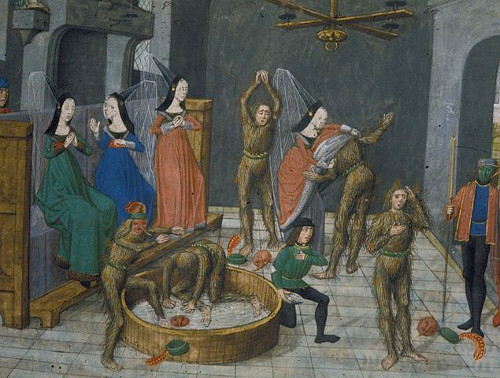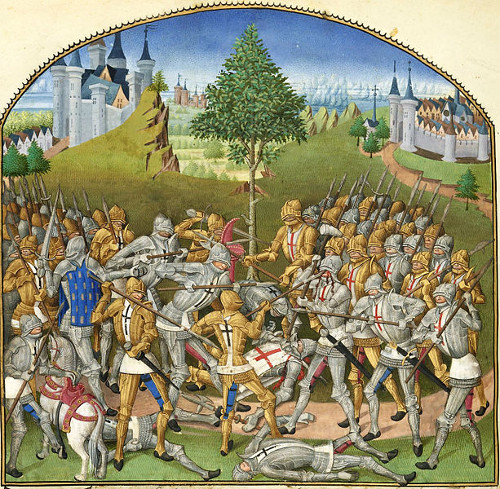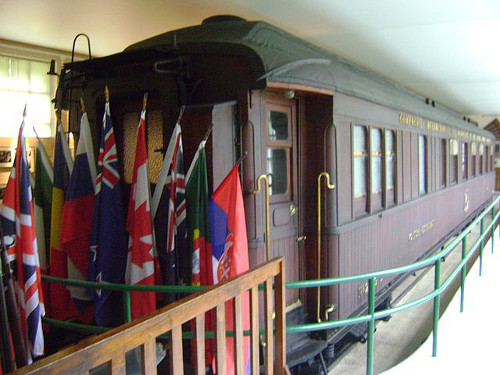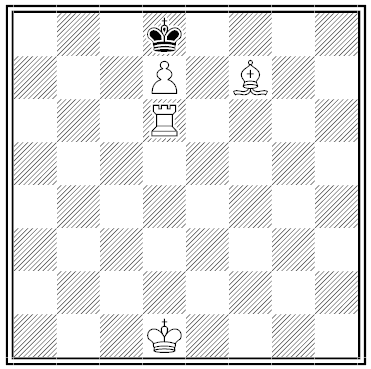“Anger makes dull men witty, but it keeps them poor.” — Francis Bacon
Exit
British statesman Charles James Fox died in 1806.
His last words to his wife were “Trotter will tell you.”
She had no idea what he meant.
Magic

If π is expressed in base 26, then each of its digits can be associated with a letter of the alphabet (0=A, 1=B, … 25=Z). This produces an endless string of letters:
D.DRSQLOLYRTRODNLHNQTGKUDQGTUIRXNEQBCKBSZIVQQVGDMELM …
If the digits of π are truly random, then this string “emulates the mythical army of typing monkeys spewing out random letters,” writes Mike Keith. “Among other things, this implies that any text, no matter how long, should eventually appear in the base-26 digits of π.”
In examining the first million letters, Keith has found that the word CONJURE appears at position 246,556. If a carriage return is added after each 2,736 letters, then we have a two-dimensional field in which further words appear, in the style of a word search. Now HOCUS and POCUS appear, intersecting CONJURE (with POCUS in the shape of an L).
When each row is 14,061 digits long, then ALPHA, OMEGA, and GOD appear in a group near position 148,655. And when rows are 13,771 digits long, then DEMON and SATAN appear interlocked near position 255,717. Keith even found the makings of a charming haiku near position 554,766 when rows are 1,058 letters long:
Sun, elk in water;
Oho! For her I’ll try to
Be a hero yet.
More here. See also A Hidden Message and Equidistant Letter Sequences.
“Atmosphere Never Dark on a Windy Night”
Several years since, when travelling by night in the mail coach, in the depth of winter and during the absence of the moon, I was surprised to observe, that, though dense clouds covered every part of the horizon, and not a single star could be seen, yet the night was far from being dark, and large objects near the road were easily discerned. On expressing my surprise to the driver, he replied, ‘The wind is very high, and during a great many years that I have been upon the road, I never knew it to be dark on a windy night.’ The observation was at that time new to me; but subsequent experience has convinced me that it was true.
— B. Hampstead, in The Magazine of Natural History, May 1831
Anecdotally, I’ve noticed that this seems to be true — the darkest nights are calm, regardless of cloud cover. Why?
Two Gruesome Incidents

On Jan. 28, 1393, during a riotous wedding at the royal palace of Saint-Pol, Charles VI and five French nobles dressed up as wild men using linen costumes covered with pitch and hair and ranged among the guests, howling like wolves and daring them to guess their identities. One guest approached too closely with his torch and set them ablaze. The Duchess of Berry had the presence of mind to throw a cloak over the king, and one of the nobles managed to dive into a barrel of water. “The other four were burned alive their flaming genitals dropping to the floor, [the Monk of St. Denis] remarks with a sharp but on this occasion rather unsavoury eye for detail, releasing a stream of blood,” notes Jan R. Veenstra in Magic and Divination at the Courts of Burgundy and France. “Three of them, the count of Joigny, the bastard of Foix and Aymeri de Poitiers were deeply mourned; a fourth victim, Huguet de Guisay, was left wailing in agony for three days before he too expired, but he was not mourned, the Monk of St. Denis explains, since he was a vicious man and people were glad to see him perish.”

On March 26, 1351, during the Breton Civil War, the contending fortresses of Josselin and Ploërmel agreed to an organized contest: Each side would select a team of 30 knights who could fight with any weapons they chose, including swords, maces, and battleaxes. Referees would signal the start of the melee and manage truces for refreshments and medical care. The fight went on for hours. In the end, English commander Robert of Bamborough, of Ploërmel, and eight of his men were slain and the rest taken captive; the pro-French Breton team lost four (or perhaps six) knights; and both sides were badly wounded. The “combat of the thirty” made heroes of its victors and became a symbol of chivalry during the Hundred Years’ War; in 1373, Jean Froissart saw firsthand the honor accorded to a survivor who displayed his scars at a feast given by Charles V.
(Thanks, Davecat.)
“Extraordinary Wave in the Channel”
The Weymouth and Channel Islands Steam Packet Company’s mail steamer Aquila left Weymouth at midnight on Friday for Guernsey and Jersey. On her passage across Channel, the weather was calm and clear, and the sea was smooth. When about one hour out, 1 a.m., 31st March, 1883, the steamer was struck violently by mountainous seas, which sent her on her beam ends and swept her decks from stem to stern. The water immediately flooded the cabins and engine room, entering through the skylights, the thick glass of which was smashed. As the decks became clear of water, the bulwarks were found to be broken in several places, one of the paddle boxes was considerably damaged, the iron rail on the bridge was completely twisted, the pump was broken and rendered useless, the skylight of the ladies’ cabin was completely gone, and the saloon skylight was smashed to atoms. The cabins were baled out with buckets, while tarpaulins were placed over the skylights for protection. Five minutes after the waves had struck the steamer, the sea became perfectly calm. Several of the crew were knocked about, but no one was seriously injured.
— Symons’s Monthly Meteorological Magazine, April 1883
The Armistice Carriage

The armistice that ended World War I was signed aboard Marshal Foch’s private train in the forest of Compiègne in November 1918.
In June 1940, Hitler demanded that France surrender aboard the very same carriage in the same spot in the forest.
“The disgrace is now extinguished,” wrote Joseph Goebbels in his diary. “It is a feeling of being born again.”
The Germans destroyed the carriage during the war, but in 1950 a replacement, correct in every detail, was rededicated. It’s on display today in a memorial at Compiègne.
Black and White
Bedrock

If all moral obligations originate from God’s commands, then so must our moral obligation to obey these commands. He commands us to obey his commands. But what is the moral reason to obey that command? An earlier command? What is the reason to obey that?
Do we have a moral obligation to follow God’s commands because we love him? This implies that we ought to love him. Why? Because he commands it? That’s a circle. Because he’s good? That seems to mean only that he follows his own commands — or else that goodness is a standard independent of God.
In a Word
vespine
adj. pertaining to wasps
vespiary
n. a nest of wasps
Lord Dunsany and John Drinkwater were appearing as guests of honor at the Poetry Society of America when they fell into a friendly dispute over the relative merits of rhymed verse and rhythmical prose. Dunsany asked, “Supposing you had a line of rhymed verse ending with the word wasp. Where, I ask you, could you find a rhyme for wasp?”
In the words of the Boston Transcript‘s Alice Lawton, “That was the evening’s Parthian shot. Mr. Drinkwater produced no rhyme for ‘wasp.'”
But Arthur Guiterman, who was in the audience, later recalled, “You can find a rhyme for wasp. There is a perfectly good one in the dictionary. I found it at home that night. It is knosp and means a flower bud, or a budlike architectural ornament. Of course, having found it, I had to use it at once.”
I saw a Melancholy Wasp
Upon a Purple Clover Knosp,
Who wept, “The Poets do me Wrong,
Excluding me from Noble Song —
Though Pure am I and Wholly Crimeless —
Because, they say, my Name is Rhymeless!
Oh, had I but been born a Bee,
With Heaps of Words to Rhyme with me,
I should not want for Panegyrics
In Sonnets, Epics, Odes and Lyrics!
Will no one free me from the Curse
That bars my Race from Lofty Verse?”
“My Friend, that Little Thing I’ll care for
At once,” said I — and that is wherefore
So tenderly I set that Wasp
Upon a Purple Clover Knosp.

